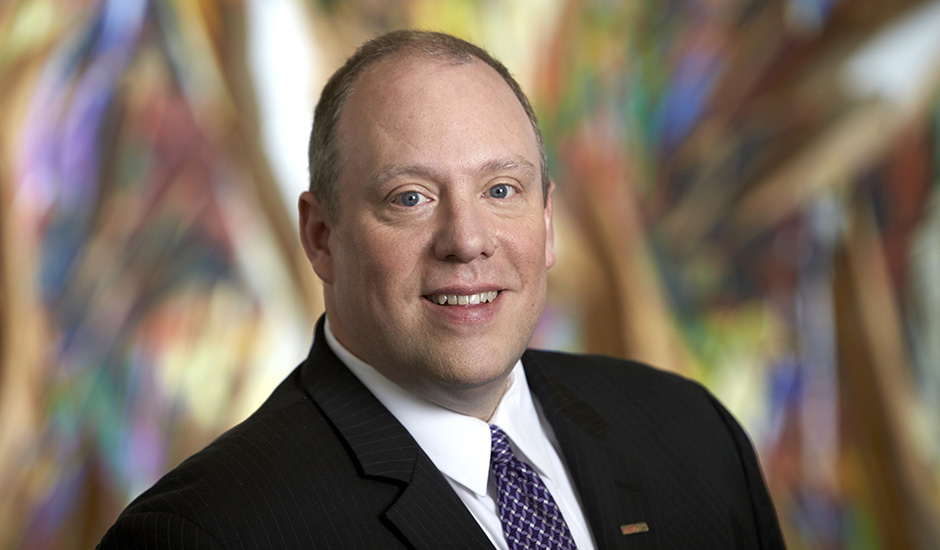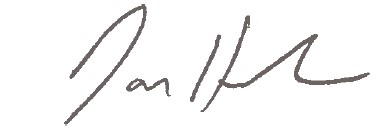Answering the Call

To say this has been a year unlike any other is not hyperbole—2020 has brought us all varying levels of pain and hardship. But of the many responsibilities of a public law school, one of the most crucial is having the wherewithal to meet challenges head-on and react accordingly so that the institution can continue to realize its mission. In the case of the UNLV William S. Boyd School of Law, that means providing students with an excellent legal education, encouraging our faculty in their important scholarship, supporting our alumni, and serving our community.
I’m honored to say that through all the obstacles we had to navigate this year, everyone associated with the Boyd School of Law worked tirelessly to ensure we stayed true to our mission. It started in March when the COVID-19 pandemic penetrated Nevada’s borders and forced us to immediately shift from in-person to virtual learning. The speed and cooperation required to accomplish this monumental task reflected our faculty’s determination and the great goodwill of our students and community.
Our devoted faculty then spent the summer pivoting to an entirely virtual environment. The goal was straightforward: Provide students with a first-rate academic experience online. In the end, a process that easily could have taken years to complete was telescoped into a matter of months.
Our hope (and plan) is to return to in-person instruction as soon as it’s safe to do so. But there was one silver lining we discovered during this difficult experience: We now know that combining these two methods of instruction—online and in-person—can enhance the learning experience. And that’s critical, because this forced move to online instruction has profoundly altered American legal education. What the future holds remains to be seen, but know with certainty that we’re capable of providing an excellent online education.
After settling into our “new normal,” we even began to appreciate the many advantages of online learning, which is vital at a time when the professional legal community has begun to embrace the opportunities of technology. Moving to virtual instruction has allowed for innovation and the utilization of technology that actually can enhance the learning experience, while also allowing for speakers from around the country to take part in our events without having to travel to campus. At the center of that innovation has been Boyd Law School Professor Joe Regalia, one of the nation’s leading authorities on law and technology. Over the summer, we seized upon Joe’s expertise to present an online boot camp designed to make sure our students and graduates were well positioned to succeed in the job market.
Not only did we swiftly and successfully shift gears to address our students’ academic and career needs, but our commitment to the community never wavered in the face of the pandemic. Our Thomas and Mack clinics, our annual Community Law Day, and our free legal education classes presented in partnership with the Legal Aid Center of Southern Nevada all proceeded without missing a beat. Our students also stepped up to the plate in a major way, as a record number (more than 50) participated in the Legal Aid Center’s Partners in Pro Bono program.
The societal challenges we faced were not, of course, limited to COVID-19. Following the senseless deaths of Breonna Taylor and George Floyd—and many others—we witnessed protests that stretched from coast to coast. The message delivered was loud and clear: To work to put an end to systemic racial inequality, we must enact meaningful social and criminal justice reform.
From our curriculum to our programming to our community outreach, equality and diversity have been ingrained in the DNA of Nevada’s only law school since its inception 22 years ago. Yet we fully recognize we can and must do more, just as we recognize it’s paramount that we’re part of the solution.
At Boyd, we are fortunate to have access to some of the foremost legal scholars on issues of race and inequality, including Professors Frank Rudy Cooper, Addie Rolnick, and Stewart Chang. Together, this trio oversees the Race, Gender & Policing program, which launched in spring 2019.
This year, in response to the protests staged worldwide—and in anticipation of future reforms—we created a new course titled “Law and Inequality: Policing, Protest, and Reform.” Taught by Cooper, Chang, Rolnick, and fellow Professor Eve Hanan, this course is required for all 1L Boyd Law students.
This past year also saw the launch of both the Justice Michael L. Douglas PreLaw Fellowship Program and the “Senator Harry Reid Civic Dialogue Program” presented by retired U.S. Senator and Boyd Law School Distinguished Fellow Harry Reid. The former, which is led by the distinguished retired Nevada Supreme Court Justice, encourages Nevada’s high school and undergraduate students from underserved backgrounds to consider pursuing (and preparing for) a legal education. We are delighted to welcome our first cohort for a virtual course January 11-15.
Beyond these programs, the law school continues to work in partnership with Clark County School District students on such initiatives as the Voting Rights Project and Students United for Diversity. Also, former Governor Brian Sandoval—Nevada’s first Hispanic governor and a Boyd Law School Distinguished Fellow—created our Law and Leadership program, which staged special events and courses that highlighted how our students could positively influence their community through positions in government and public service. The program is still going strong even as Sandoval assumes his new role as president of the University of Nevada, Reno.
While I’m confident each of these initiatives will have a lasting impact, I also recognize there’s still much work to be done. And Nevada’s law school stands ready and willing to do that work by adding more voices, more perspectives, and more ideas. Diversity and inclusion are more than just buzzwords; they’re at the heart of who we are and what we believe in.
Recently we celebrated our December graduation at the law school. It was inspiring to hear about all the public interest work our graduates have already accomplished, including representing Nevadans in court, working on public policy initiatives to protect the environment, and partnering with the legal community on pro bono cases. These graduates join more than 2,500 Boyd Nation alumni, and we cannot wait to see what they will accomplish. Our students and alumni serve as a constant reminder that even in difficult times, the Boyd School of Law remains committed to its public mission.
These recent graduates and the thousands who preceded them show that we will always meet this commitment.

— Daniel W. Hamilton, Dean and Richard J. Morgan Professor of Law